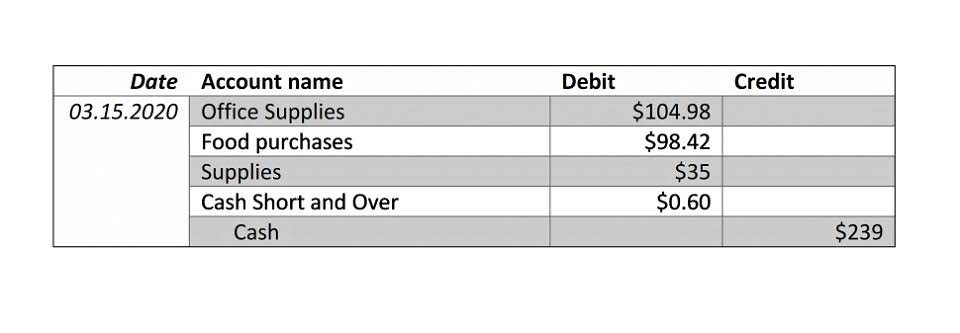How the Accounting Industry is Evolving in the Age of Coronavirus

In the months that followed, many accounting firms helped their business clients navigate unprecedented business challenges and leverage federal relief packages, including the Paycheck Protection Program and Economic Injury Disaster Loan program. By transitioning your systems to the cloud, you are ensuring the flow continues even when access to your physical office is limited or completely restricted. Accounting firms, known for brick-and-mortar offices and in-person client experiences, have encountered new challenges during the past several months.
COVID-19 Reporting series with our experts

Cloud-based software like Xero has transformed the handling of much of the day-to-day bookkeeping and admin tasks accountants deal with. This automation has not only freed up time and resource but also reduced the risk of human error. Also be sure to follow your veterinarian’s advice on when it’s safe to end the home isolation.
Managing business continuity and finance during COVID-19
Now the firm has five or six Zoom meetings a day, Nettleton said, and meetings with clients also take place on the app. “It really took a pandemic to, I believe, get the profession to embrace this remote-work concept,” Bourke said. In light of COVID-19, companies may consider introducing new alternative performance measures (APMs) or adjusting existing APMs to explain the effects of the pandemic on the financial position and performance of the company.
Jon Munson, CPA/PFS, on Tax and Accounting Trends
It’s in part thanks to the familiarity with working remotely that a lot of employees in the accounting sector had already has meant that productivity overall and individually hasn’t suffered as a result of having to work from home. It is accurate to the best of the authors’ knowledge as of the article date. This article should not be viewed as a substitute for recommendations of a retained professional. Such consultation is recommended in applying this material in any particular factual situations.
Accounting considerations related to the Coronavirus 2019 Disease
“What I’ve been advising firms is to think about those issues and document them, because when the question comes, it’s not going to be with a lot of lead time,” Melancon said. “Go back to the intent, and document what you were thinking of.” He also advises firms not to sign PPP applications on clients’ behalf — the head of the business should do that. Looking for an anchor how has covid affected the accounting profession in the storm, accounting firms around the country are seeking advice and help from veteran offshore operators like BooksTime to set up overseas operations. Through it all, the pandemic highlighted the importance of future-proofed skills that can anticipate and are agile in a new world—a world where professional accountants are established as strategic leaders.
- While the standards address what evidence an auditor needs to obtain, they don’t generally dictate how to meet those requirements.
- Like many other industries, accounting has become a lot more accustomed to digital and remote processes that were far from commonplace prior to the pandemic.
- When asked if there had been any changes to their office set-up, respondents answered in a variety of ways.
- The best way to protect most animals against SARS-CoV-2 is to reduce the risk of their exposure to the virus through infected people.
- This study aims to explore the impact of Covid-19 on the various aspects of the accounting industry, represented in cash flows, inventory, financial reporting, going concerned, fair value measurements, auditing of financial statements and other aspects.

This is another trend that started pre-COVID-19 and was greatly accelerated in the last year. Many firms are actively working on a permanent flex-work policy by giving employees 2-3 day work-from-anywhere options. Self-employment has been steadily increasing over the last 20 years which is good news for the accountancy industry as competitiveness bites. Many firms have been looking to cut costs https://www.bookstime.com/ and overheads, instead turning to self-employed accountants for a fraction of the price of inhouse employees. It’s a no-strings relationship that means maintaining high standards and a diverse range of services for clients whilst also trimming the fat. The pandemic has been a bumpy ride but as the ‘new normal’ has set in, accounting professionals have grasped new opportunities that have arisen.
At this event, you’ll gain exclusive insights, develop practical skills, and network with your unique professional community over four energizing days. “Now, and into 2023, educators can participate in webinars, faculty discussion hours, and they can access a resource hub to locate materials we’ve curated, including articles, case studies, white papers, and other content,” she said. And students will need to know how to tap into technology including advanced Excel, machine learning, RPA, and data visualization software, she added.

How Covid Changed the Accounting Profession for Good
Be mindful of due dates that have changed, and those that have not, and work with clients to file returns on time. If this is not coordinated properly, the client may blame the CPA for any late-filing penalties. Refer to the AICPA’s Federal Due Dates Chart Updated for COVID-19 Relief (available at aicpa.org; member login required) for the most up-to-date information regarding federal returns. In addition, the AICPA has created a State Due Dates Chart Updated for COVID-19 Relief that summarizes state filing deadlines (available at aicpa.org; member login required).
The Inflation Reduction Act also includes the new 15% alternative minimum tax for corporations with a three-year average adjusted financial statement income in excess of $1 billion. Wilson noted that the difference between firms that will thrive and those that will falter will be the degree of self-interest with which the leaders make decisions that affect their firms and their future. And consolidation will be on the rise as leaders at small and medium-size firms feel increasing pressure to move their succession and buyout challenges to larger firms, she said.
- As the stability of the economy becomes less certain, lenders may be more aggressive in requiring a CPA’s confirmation of certain information, such as the impact of COVID-19 on a client’s business, when credit is extended or terms are modified.
- Does the scope of service require modification or clarification to ensure it limits the firm’s responsibility to only those services outlined in the engagement letter?
- As for the technologies related to working from home, many accountants stated that working remotely was not new to them.
- While the full impact of COVID-19 is unknown and uncertain, what is certain is the need for CPAs to be vigilant and informed and to be flexible and adaptable in their response to these changing times.
- No matter what technical solutions are in play, to maintain credibility with their clients, CPAs must groom their soft skills to see their clients through these challenging times, according to an article on CPAPracticeAdvisor.com.
